We live in a world where it’s almost impossible to keep up with the inventions and developments in different fields. In some fields (e.g., computer sciences), as you’re learning something new, it might get obsolete. That’s how fast things are moving forward. But are we learning fast enough to pick up the pace? It’s the least we can do to survive in such a rapidly advancing world. Let’s see how.
Understanding the Learning Process
According to an article by Jan De Houwer, learning refers to a change in our behaviour, which is induced by our interactions with the surrounding environment. This suggests that receiving new input doesn’t count as learning unless it changes how we think, feel, and act. Moreover, this definition indicates that the changes caused by learning new skills are relatively permanent.
But that’s just the tip of the iceberg. I suggest reading the article “The Definition of Learning” if you’re curious about how it works. I also recommend watching Barbara Oakley‘s lecture on “Learning How to Learn” on YouTube.
Actionable Solutions on How to Learn Things Faster
So far, we have learned that learning is unavoidable, but it takes time, sometimes much time. Now, let’s see how we can shorten the period without risking learning outcomes.
1. Chuck away Your Cell Phone

These culprits can distract you when they’re within reach. Researchers at the University of Toronto found that even when your cellphone is turned off, it can still be distracting if it’s in your sight. The Brain Drain hypothesis indicates that “the mere presence of one’s own smartphone reduces available cognitive capacity.”
2. Commit to the Five-Minute Rule

The frontal lobes of the brain are in charge of executive functions such as goal setting, working memory, task initiation, planning, and self-monitoring. This brain area might be less active in people who struggle with starting a task. The dopamine level (the reward hormone) also influences your willingness to start a task.
The basic solution to the task initiation problem is to commit yourself to concentrating on the task for at least five minutes. Although this may seem like a short period, you’ll find yourself wanting to continue the task until you reach a milestone. If you’re a procrastinator, you can watch Caren Magill’s (an ADHD coach) video on “Why We Struggle To Get Started.”
3. Adjust the Difficulty Level
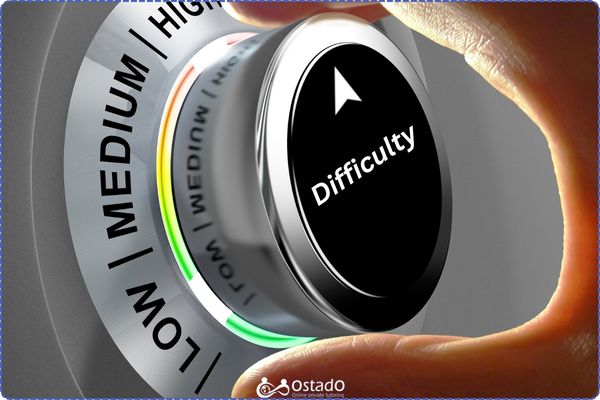
Don’t bite off more than you can chew. A recent research study by Jonna Malberg shows that your understanding of a task’s difficulty can influence the task’s outcomes.
In language learning, placement tests can help you understand your current level and give you a starting point. In order to learn other things, it’s essential to ask for an expert’s advice, especially in the beginning.
If you’re entirely new to the topic, start with the basics and steer clear of internet shortcuts to success because learning is realised through a systematic and step-by-step process. If you’re already familiar with the topic, you can start the learning process where you left off.
4. Chunk the Study Sessions
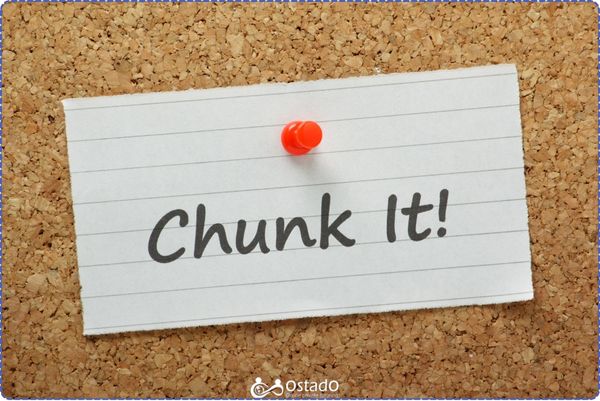
You can’t force information into your brain when it’s loaded. Based on an APA article, you should space out the study sessions. The spacing effect improves long-term memory, and you can retain the information you have learned for a longer period of time.
Research findings show that shorter, more frequent sessions are more effective than longer, less frequent ones. For example, if learning something takes 12 hours, it’s better to break it down to 8 or 9 study sessions in 3 weeks than cramming all 12 hours in one week.
5. Take Frequent Breaks
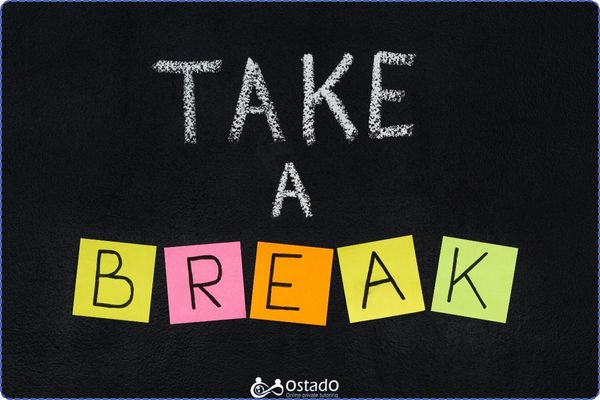
The length of study sessions varies among different people and at different times of the day for the same individual. But it shouldn’t exceed 90 minutes per session as it will lose efficiency.
Based on an article from the University of Pittsburgh, the Pomodoro technique “is a great tool to help you focus better when studying.” According to this technique, each study session is at least 25-30 minutes long, and it’s followed by a 5-minute break. Feel free to adjust the study sessions and breaks based on your learning preferences, but try to keep them consistent.
6. Learn Through Different Channels
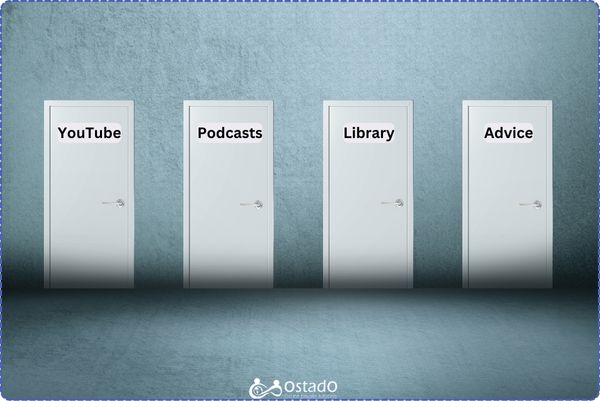
Based on a study by Carnegie Mellon University, the academic performance of students is significantly better when they are engaged in interactive activities, discussions, and AI-enhanced technologies compared to lectures and readings.
Learning through different channels transforms learning from an exhausting activity to something you look forward to. For instance, practising the violin alone might get dull over time, but if you have a practice buddy to play a piece together (collaborative learning), you’ll find the activity enjoyable, and dopamine starts releasing. Plus, you can find a plethora of YouTube videos to supplement your violin classes.
7. Consider Hiring a Tutor

The article on “High-impact Tutoring” shows how a tutor’s intervention in the course of learning can accelerate the learning process, increase engagement, and lead to significant accomplishments.
In private tutoring, you’re the centre of attention, and the tutor will make a special effort to turn your weaknesses into strengths. The tutor adjusts the pace of tutoring sessions based on your learning style and uses multiple proper resources to help you realise your learning targets. Ostado’s online private tutors can help you with different school subjects to improve your grades.
8. Immerse Yourself in Learning

The immersion model (frequently used in the context of language learning) states that when learners are immersed in the target language, learning happens more naturally and quickly, and they gain more fluency and proficiency in the target language. It’s worth mentioning that the environment plays a crucial role in the immersion model.
I want to transfer this to other contexts here. A friend of mine is a professional forex trader. I remember when he was learning about the market and the nuances of trading, he joined many online forums, took several courses, wore some T-shirts with Forex icons, changed his smartphone and laptop background to some lines and graphs, and when he wanted to talk to us, he used many financial references that were mostly baffling.
What I want to get at here is that he was immersed in the trading world. He surrounded himself with constant reminders of what he wanted to learn, and this (at least partially) contributed to his success in the market. This example also conveys that you can create this environment deliberately. Yet, it’s better if you’re in an authentic environment.
9. Build on the Things You Already Know

This is a great technique to quickly make new information stick in the long-term memory. You can think of the new information as an extension of your current knowledge. According to an article by William R. Klemm on “Learn by Making Associations“, associating new knowledge with old knowledge can be intentional or unintentional, and it’s more effective when it’s intentional.
The reason why associating new with old improves memory recall is that memories are “stored as a network of related items.” When one item is called upon, other relevant items are recalled as well.
10. Test Yourself

Self-testing is an instance of active learning. Self-testing involves an introspective process where learners evaluate their own performance to identify their strengths and areas for improvement. In other words, self-testing indicates the knowledge gaps, and you can move on more quickly when they’re filled.
For instance, if you’re watching a long tutorial on YouTube, pause every now and then to see if you can remember the stages so far and what they involved. This helps you learn faster than re-watching the whole video.
11. Make Magic Mistakes
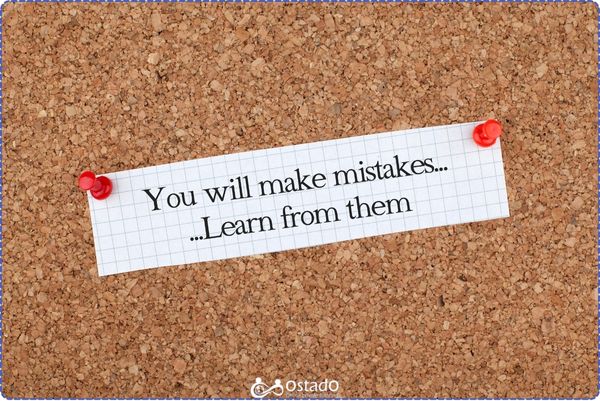
We all know that mistakes are inevitable in the learning process and that they are actually great learning opportunities per se. But what you probably didn’t know is that even when you make mistakes intentionally and then correct yourself, you can enhance and accelerate the learning process. This concept is called the “derring effect.”
For example, if you’re practising past papers to prepare for the biology exam and give a false answer to a question and then correct yourself, you will answer the question more easily if it appears on the exam paper.
12. Get Regular Feedback

Feedback is a great gap-filler, and it’s more effective if it’s provided on the spot. Frequent feedback helps you learn from your mistakes and avoid repeating them. Good feedback is characterised by clarity, specificity, balance, and timeliness.
Traditionally, You could get reliable feedback from books and experts, but nowadays, you can use AI to receive immediate and personalised feedback. Watch this short video to get the best feedback” from AI.
13. Teach What You Are Learning

Teach-to-learn is one of the instances of active learning. According to the “Protégé Effect“, teaching others requires the retrieval of the learned information. This motivates the learners to delve into the learning process and encourages them to go a little further than what’s needed to teach the topic.
Interestingly, another study shows you don’t have to actually teach someone to enhance your learning; even imagining that you are required to teach the topic to others does the trick.
If you want to take things to the next level, you should try to rephrase and simplify the lessons so that even a six-year-old can understand your explanations. That’s how you can realise the true potential of this learning technique.
Click on “Improve Your Learning By Teaching” to listen to a VOA podcast on this topic.
14. Take Handwritten Notes

The findings of a meta-analysis research paper by Abraham E. Flanigan indicate that “handwritten notes are more useful for studying and committing to memory than typed notes.”
This is because writing requires active brain participation in the process; You’d have to listen, analyse, and write down the keynotes. That also explains why it takes longer to take handwritten notes.
On the other hand, typing benefits from muscle memory and doesn’t involve the brain cells in the process as much. When typing, the info travels directly from your ears to your fingertips, which makes it significantly faster than taking notes by hand.
15. Use Mnemonic Devices
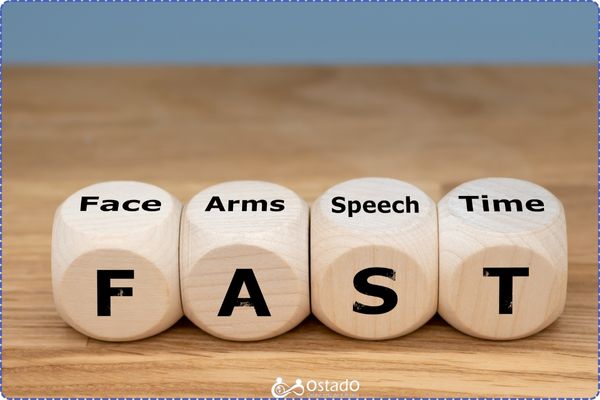
Mnemonic devices help you memorise new information. More specifically, these tools can help you memorise the order of events, large chunks of info, and abstract concepts.
Mnemonic devices come in different types, including musical, rhythmical, and acronymic, each useful for remembering certain kinds of information. The following is a kind of acronymic mnemonic device:
Remember the sequence of colours in a rainbow: ROYGBIV: Red, Orange, Yell”w, Green, Blue, Indigo, and Violet.
A research paper by Tara Radovic on “The Impact of a Mnemonic Acronym on Learning“ shows that using a mnemonic acronym helps you remember the sequence of procedures better even if you’re interrupted in the middle of the task and asked to resume immediately.
16. Say It Out Loud!

The results of a research study from the University of Waterloo about the “production effect” show that reading information aloud improves the learning process through faster memory retention. This is because you’re reading the text and hearing it simultaneously, therefore receiving information from two channels. In other words, you’re transforming reading from a passive to an active experience, making it easier to remember.
You can make the production effect even more intensive by giving proper stress and intonation to the text as you read it aloud. Of course, it’s better to read key information out loud to set it apart from other less important pieces of info.
17. Stop Multitasking

It sounds tempting to deal with two or three tasks simultaneously and save lots of time. However, research shows that our brain “is not as good at processing multiple tasks at the same time as we expect it to be.”
In fact, based on an APA article, “Multitasking: Switching costs“, multitasking hinders productivity and comprehension because when the brain wants to switch between tasks, it experiences a cognitive load which makes it difficult to store new information. Therefore, you should concentrate on one task at a time if you want to learn things faster.
18. Develop Growth Mindset

Based on a study by Carol Dweck at Stanford University, students who took a course to cultivate a positive attitude towards learning got better grades. Dweck’s earlier research shows that students who believe they can improve their intellectual abilities have better academic performance compared to those who believe intelligence is a fixed construct.
So, simply by believing that you can learn something fast, you’re breaking through the barriers in your way.
19. Exercise Frequently
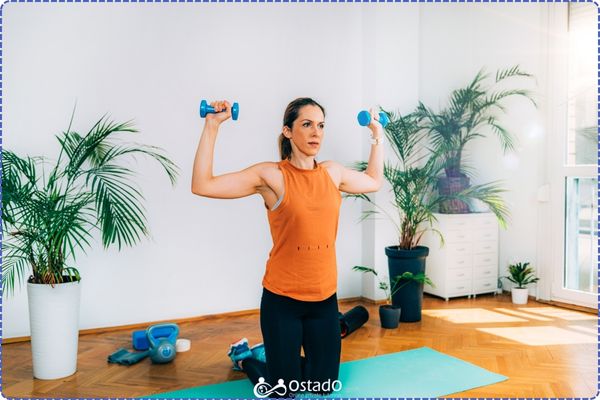
Aside from the health benefits, working out brings about better academic performance, memory, and attention. Based on the findings of a research article by Hillman. C, “Cardio and motor skill activities improve overall brain function.” Based on the findings, a simple 20-minute walk enhances oxygen flow into the brain and helps to obtain input more efficiently. So, if you’re after effective learning, you must dedicate some time to physical exercise. The good nNight’sthat you don’t have to go to a gym. Here are “30 Office Exercises to Try Right Now + pictures.”
20. Get a Good Night’s Sleep

A great deal of learning happens when we are asleep, according to a Harvard University study. When we’re sleeping, the brain reactivates and reorganises the materials we recently learned. Surprisingly, even a 6-minute nap, or micro-nap, helped volunteers remember 30 words they had memorised earlier based on another study.
Therefore, burning the midnight oil isn’t as productive as you might think, and if you keep doing this and forcing yourself to stay awake by relying on coffee or energy drinks, you might risk your health.
In short, sleeping is just as important as your conscious efforts to make learning happen, and you should sleep at least 7 hours a day.
21. Stay Hydrated

It’s no secret that water is a vital nutrient, but we often take water intake for granted. According to guidelines provided by The National Health Service (NHS), if you’re over 18, optimally, you should consume 3 litres (or 6 to 8 full glasses) of water per day”.
Based on a research article by Natalie A. Masento on “Effects of hydration status on cognitive performance and mood“, cognitive abilities and mood states are positively influenced by water consumption.
So, keep a jug of water at hand and take bottled water with you as you go to the class or library. It’s just as important as carrying your cell phone.
Why Do People Have a Hard Time Learning?
It’s not surprising when I tell you that learning is associated with some negative perceptions, such as stress, fear of failure, frustration, and boredom. Some of the reasons why we are bad at learning include:
Too Many Strings Attached
We tend to make learning more difficult than it is. “It’s too hard; I don’t have the resources; I don’t need it; I already know everything about it; I must go to a library for this; The lighting is poor; My eyes are sore.” Yes, it’s more productive to learn in a proper environment with adequate resources, but it doesn’t mean you can’t learn fast.
Impatience
Let’s set aside the belief that some people are “gifted” or “natural“. The validity of this belief doesn’t concern this article. As a rule of thumb, when you want to learn something, you must set a goal, make time, gather resources, plan, and stick to the plan.
This can be a short-term learning goal, like learning to cook several recipes, or it can be long-term, like learning to speak another language. Either way, it takes time, and the more significant the goal is, the more time it takes. So, don’t expect to learn something big in a couple of weeks.
Distractions
We’re surrounded by too many sources of distraction, whether it’s a notification on your cell phone, the doorbell, someone shouting your name in the living room, or a fly swirling around your head. Of course, it can be due to medical conditions such as ADHD, OCD, Sleeping Disorder and the like, in which case, you’ll have to seek advice from an expert.
Put your cellphone on the “do not disturb” mode and head to the library or anywhere you find appropriate to concentrate and learn faster.
Age Misconception
As we get older, our brain doesn’t process information as fast as it used to when we were younger. But, there is a wealth of knowledge and experience to make up for the slow procession. In fact, the findings of a research study show that lifelong learning can keep the brain active and improve cognitive health.
Thus, with enough motivation and the right learning strategies, you can keep learning.
FAQs - How To Study Fast
- How to memorise fast in 5 minutes?It greatly depends on your mental abilities and the concept you want to memorise. One way to memorise something quickly is to use mnemonic devices.
- How to memorise 100 pages in a day?Cramming too much studying in a day doesn't yield good results. But if you are close to an exam day or a deadline, you can get help from AI to extract the main points from your 100 pages.
- How to study smart, not hard?You're asking the right question. Studying is most effective when it's planned, focused, and followed by some kind of assessment and feedback. Additionally, you should consider adequate breaks and get enough sleep to remain productive.

